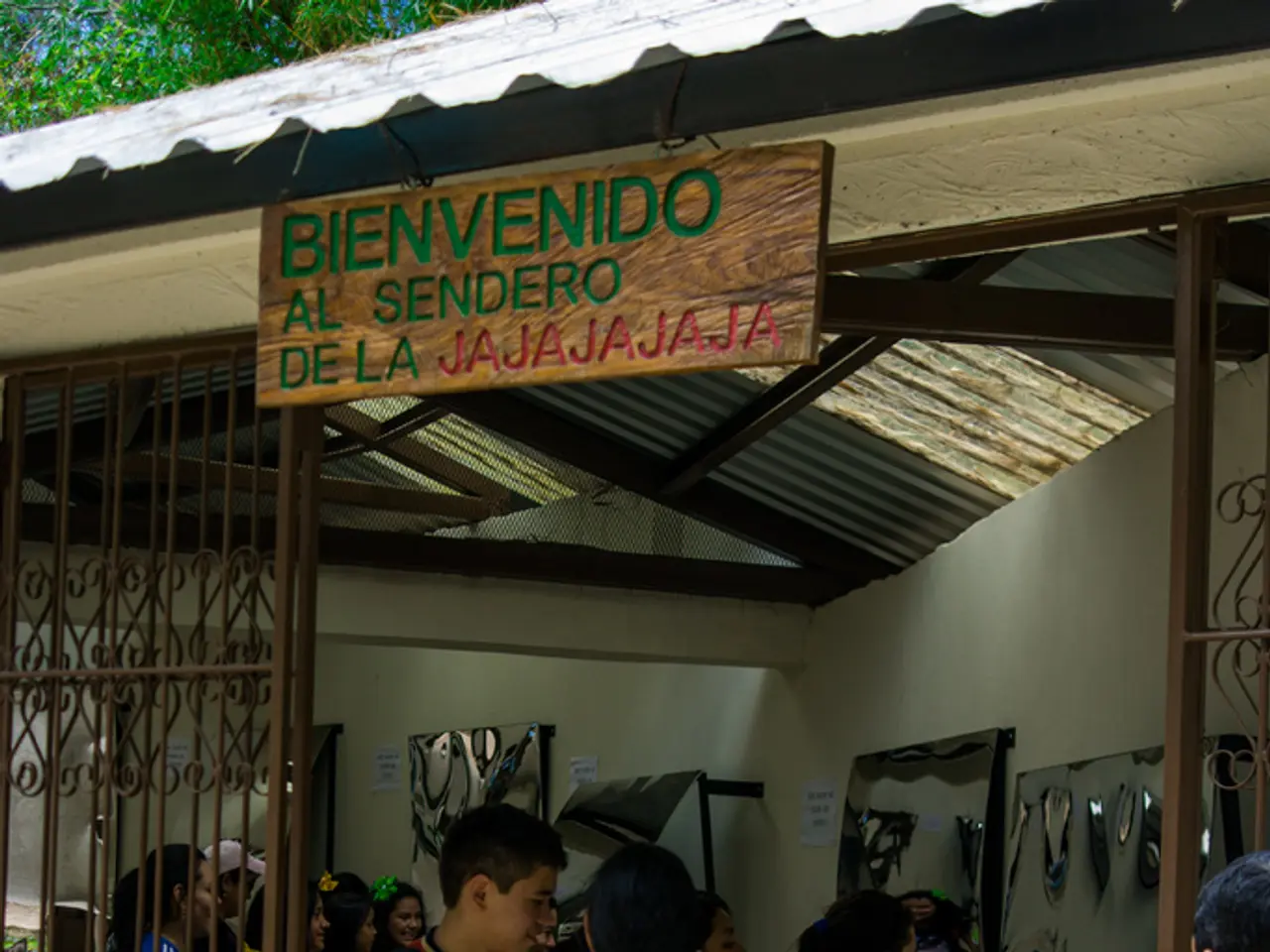Hospitality professionals bracing themselves for a high-stress season ahead
In the heart of the summer season, Quebec hotels, inns, and lodges are operating under a cloud of increased regulatory pressure. This pressure, primarily due to stricter enforcement against illegal tourist accommodations, has led to an avalanche of new requirements for hoteliers, often imposed quickly [1].
The crackdown on illegal tourist accommodations, such as unlicensed short-term rentals, is aimed at protecting the traditional accommodation sector. Cities like Montreal have implemented rules that impose fines and can pursue legal injunctions against persistent offenders who operate without proper licensing. This regulatory effort reflects Quebec’s broader Tourist Accommodation Regulations aimed at ensuring compliance [1].
The impact on hotel operations is significant. Establishments now face fines of up to $3,000 for minor administrative oversights, such as failing to remove a classification sign, having visible stars in a promotional photo, or displaying a permit in the wrong place. These infractions, while seemingly trivial, are being fined as if they were fraudulent practices [1]. Since the Tourist Accommodation Act came into effect, hundreds of legally operating establishments have received fines.
The increased regulatory burden can raise operational costs and administrative complexity for legitimate operators seeking to comply with these regulations. This pressure forces hotels to strictly adhere to licensing, safety, and operational standards to avoid fines and legal actions.
However, this regulatory crackdown may also benefit regulated hotels by leveling the playing field. The reduction of unfair competition from illegal operators could potentially improve the business environment for those operating within the rules.
The goal is to support establishments in their compliance efforts while firmly sanctioning abusive behaviors, rather than penalizing those in good faith. A call for the introduction of graduated fines has been made, with a distinction between administrative infractions and serious or repeated violations.
The tightening of access to the Temporary Foreign Workers program exacerbates the existing labor shortage, risking optimal service maintenance. Many small hotel owners are handling multiple roles, including meal preparation, room cleaning, and guest welcoming, in addition to regulatory compliance to avoid penalties.
Compliance with the Official Languages Act is required for all communications. New rules surrounding tips have affected billing practices, and cash register equipment needs to be replaced to meet Revenu Quebec's new technological norms. Regulatory pressure is impacting the businesses, causing a diversion of energy from core operations.
An open letter signed by several hoteliers calls for distinguishing between responsible, declared actors and those operating on the margins of the rules. The letter encourages travelers to check the registration and legality of tourist accommodations before booking, supporting a fair and responsible hotel sector [2].
The following hoteliers are among those who signed the open letter: Marc-André Dandeneau, Aude Lafrance-Girard, Josée Lelievre, Louis Lespérance, Caroline Milot, Nadia Minassian, Sylvain Beauséjour, Xavier Icardo, Jean-Pierre Frigon, Julie Roy, Anik Béland and Audrey Hatin, Brian Béland, Normand Béland, Christine Cadieux, Philippe Hamel, Valeria Landivar, Martin Lévesque, Melanie St-Germain, Ariane Bérubé, Simon Cloutier [2].
The dedication of the staff is ensured to provide a satisfactory guest experience. It is advised to consult the official directory of authorized establishments for booking purposes.
References: [1] Le Devoir, "Les hôteliers souhaitent une distinction entre les acteurs responsables et ceux qui opèrent sur la marge des règles", 11 July 2023, https://www.ledevoir.com/actualites/quebec/581320/les-hoteliers-souhaitent-une-distinction-entre-les-acteurs-responsables-et-ceux-qui-operent-sur-la-marge-des-regles [2] La Presse, "Les hôteliers demandent une distinction entre les acteurs responsables et ceux qui opèrent sur la marge des règles", 11 July 2023, https://www.lapresse.ca/actualites/quebec/202307/11/01-581320-les-hoteliers-demandent-une-distinction-entre-les-acteurs-responsables-et-ceux-qui-operent-sur-la-marge-des-regles
- The regulatory crackdown on illegal tourist accommodations in Quebec's accommodation sector has triggered a call for distinction between responsible, declared actors and those operating on the margins of the rules, as stated in a joint open letter signed by several hoteliers [2].
- The push for change includes a call for graduated fines that would distinguish between administrative infractions and serious or repeated violations, as a means to support establishments in their compliance efforts while firming sanctions against abusive behaviors [1].
- The constant strain of adhering to stricter business-related policies and legislation, such as the Tourist Accommodation Regulations, has substantial implications for the general news, politics, finance, and business sectors, given the potential impact on the local economy due to operational cost increases and administrative complexity for legitimate operators [1].




